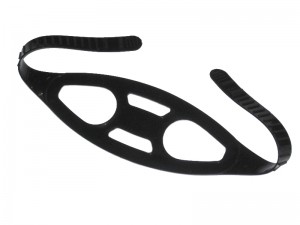This is it. The moment you’ve been waiting for. You’ve planned for months, had all your dive gear serviced and inspected, and are ready for a great day of diving. This is the trip of a lifetime. However, it is almost guaranteed that you don’t have an essential part of your dive gear. Mask, fins, snorkel: check. Regulators, BCD: check. Wetsuit, hood, gloves: check. What is missing? Nothing you say? Well what if something breaks? You’re tightening your mask strap or fin strap and it breaks? You attach your regulator to the tank and hear a loud *pop* followed by a rush of air. What is missing from your dive bag? A spare parts kit. This is one item that very few divers carry with them, however can end up being the most essential part of your packing list. So we’ve briefly put together a list of items you can include in your dive gear that may end up saving your trip.
Spare mouth pieces for your regulators or snorkel. It’s always a good idea to have a couple just in case; if you don’t end up needing them, maybe your dive buddy will.
Spare Straps. Carry at least one spare strap for your mask, and if you use fins with straps, it’s a good idea to carry at least one spare fin strap as well.
Cable ties. They will secure just about anything: Spare mouthpieces, gear onto a BCD; the humble cable tie has a hundred uses in the dive world, so back one or two of a couple of different sizes.
Snorkel keepers. Sure, your new mask came with an intricate snorkel keeper, but have a spare silicone figure-eight style in case that fancy one breaks.
A small tube of Vaseline. This, like cable ties, has many uses. It can be applied under wetsuits to prevent chaffing. It can help seal a mask around a facial hair. If you don’t think you’ll need it, maybe your dive buddy will.
Motion sickness pills: If you are going on a dive that often means traveling by boat, motion sickness pills will be your best friend. There is nothing worse than being seasick on your way to a dive site. Not just that, if you find yourself seasick, you may not be able to dive at all and you will find yourself stuck on the boat until the other divers return, getting sicker by the minute.
Spare batteries: This is particularly important if you are bringing an underwater camera or have your own computer and/or transmitter. Imagine that you are close to the dive site and you are preparing your camera and finding your camera is out of batteries, or are setting up your equipment and your computer’s battery light begins to blink. Remember: some dive computers require a licensed, trained technician to change the battery; if this is your model, it is a good idea to have it checked before the dive, and bring a spare if you have one.
So there you have it: A list of items that can save your dive should something go wrong before you jump in. Take another look over the list; what do all these items have in common? They are small, lightweight, and don’t take up much room. By carrying a small pouch with these items, you can be a real lifesaver to yourself or your buddy on your dive—give someone in need a spare mask strap on a once-of-a-lifetime dive, and chances are you’ll have a couple of cold drinks coming your way when you hit dry land!

